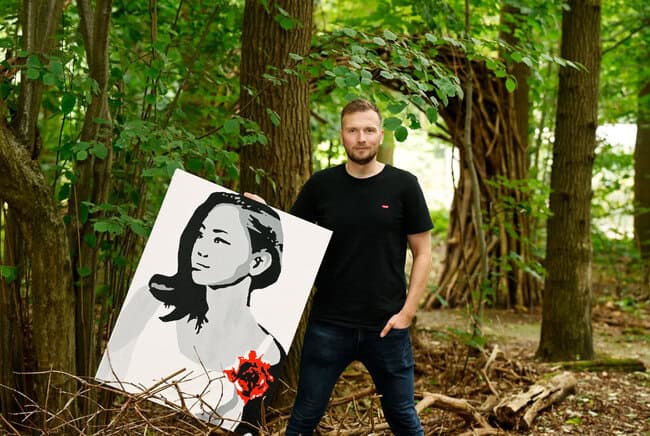
This afternoon forty regional entrepreneurs came to the Eindhoven University of Technology to be inspired in the field of innovation. The session with Innovation Lab director Steef Blok, Professor Maarten Steinbuch and five students was an initiative of the employers’ organisation VNO, which fulfilled “a desire of entrepreneurs to get even more in touch with TU”.
For Steef Blok, himself an entrepreneur as well as part of the academic community, this was a welcome invitation. He showed his audience that the university is only able to remain thriving thanks to strong entrepreneurship. “Thanks to university and business investments, we have been able not only to bring about innovation in the region, but also to achieve commercial success ourselves.”
And where better to jointly look for entrepreneurial success than at the university “which has been the number one in the world for 12 years in a row because of the collaboration with the industry”, Blok wanted to know – without the need for an answer. And for Blok, there’s no finish line anywhere near yet. Together with the other three technical universities, he has set himself the goal of creating a thousand new companies and 32,000 new jobs by 2022.
Research environment
Entrepreneurs – especially those from SMEs – often recognise the need to innovate, but lack the time, knowledge, people, facilities and money. But there are also barriers on the part of the university, according to Maarten Steinbuch. “Although I have 60 PhD students and 70 graduating students per year, it is unfortunately not the case that they can simply be placed within a company to help them innovate. Apart from the cost – about 100,000 euros per year for a PhD candidate, for four years – it only makes sense if such a person ends up in a rich research environment. In other words, more people within that company need to be involved in research, otherwise, everyone will only get frustrated.”
But if it succeeds, then it can go fast, Steinbuch assures us. “Because if a company like Philips hires a PhD student, they also get seven graduates. This is always the case with our department: graduates support the PhD students in their research. So I certainly want to help you solve your research questions, but the circumstances must be sufficiently fertile for a researcher.”
SURE Innovation
Fortunately, there’s the students of TU/e SURE Innovation and their Knowledge Question Bank. As part of their studies, these students can offer short-term research for – in particular – SMEs. The local entrepreneurs immediately showed their interest in the students’ 3-minute pitches around the themes of smart mobility, energy, health, data science and innovation science. Time turned out to be too short to get all their questions answered.
After that, TU/e’s Monique Greve was in the best position to present all the details about her SURE Innovation initiative. “Half of all SMEs are concerned about their level of innovation” Greve said. “It is because of the frenzy of the day that innovation often becomes difficult, we all know that too well. That is precisely the problem we are solving for you at SURE Innovation. We can ‘translate’ all your innovation ambitions into a plan of action and link it to our best students, who we in turn coach in their work.”
You can learn how to innovate, says Greve. But also how to hire innovation at the TU/e. SURE’s implementation is based on four lines, Greve says: “The most accessible part is the questionnaire bank, where we quickly look for an answer to a very specific question. In addition, we offer brainstorming sessions for a part of the day, ‘smart capacity’ for a specific period and larger innovation projects. This can involve product development, process optimisation, testing or consultancy.”









